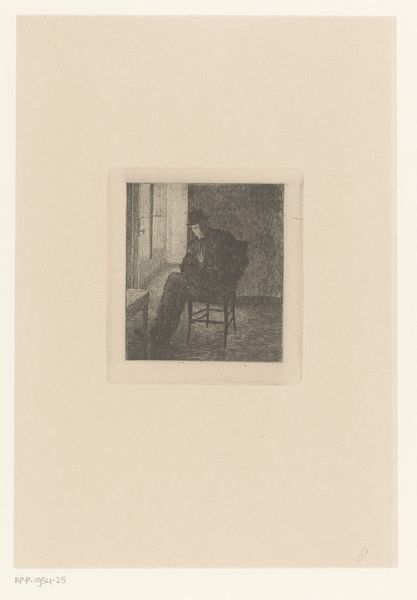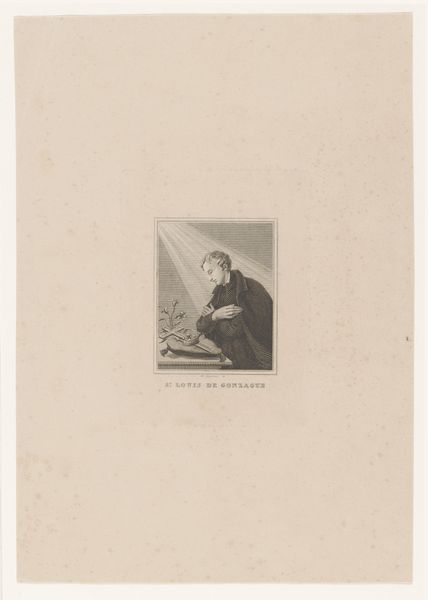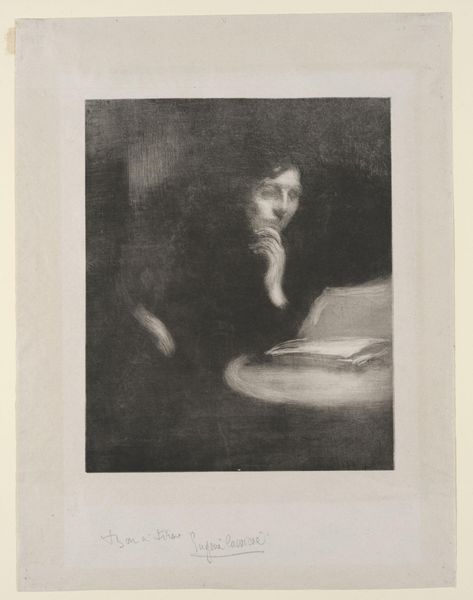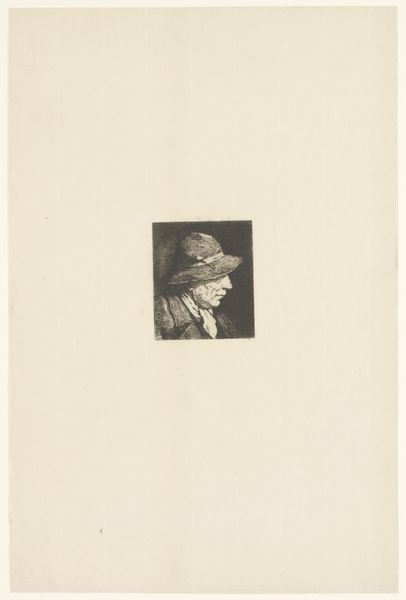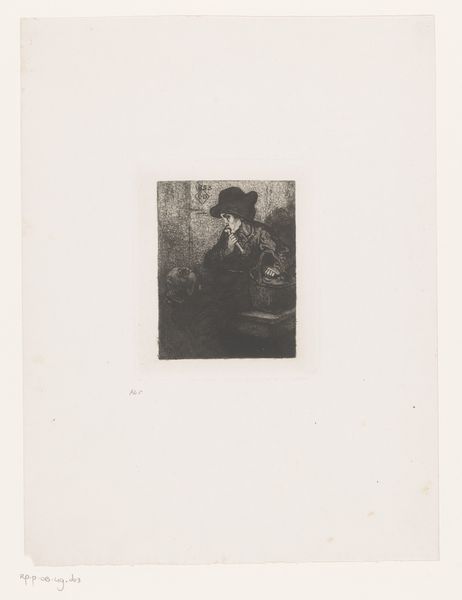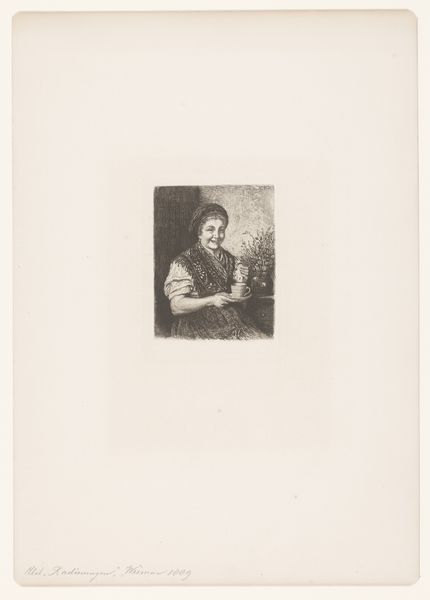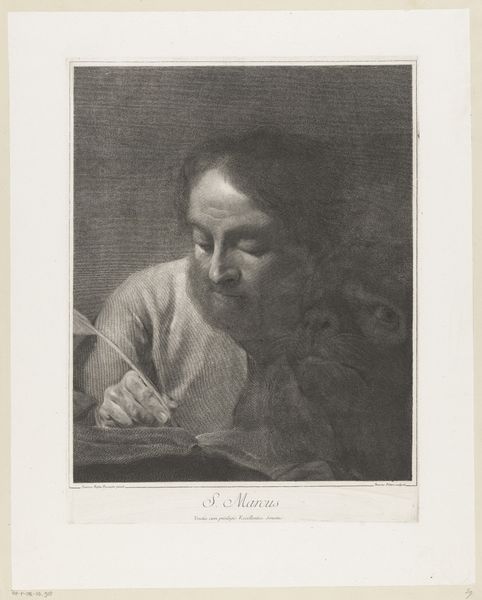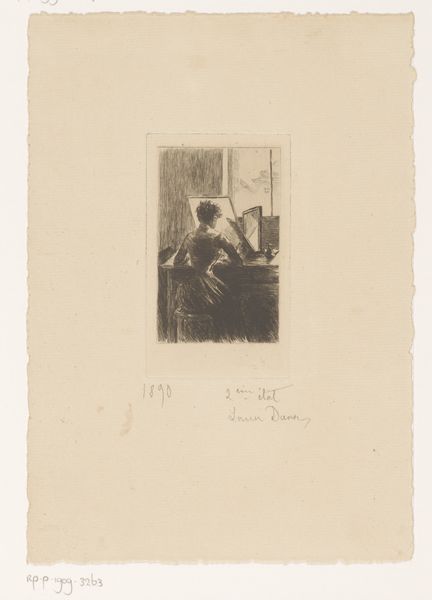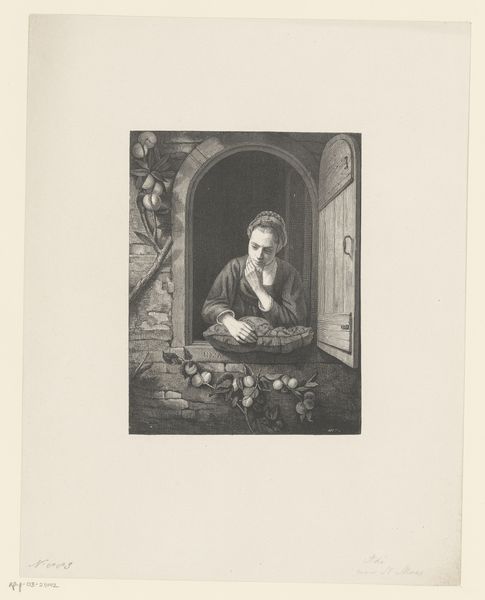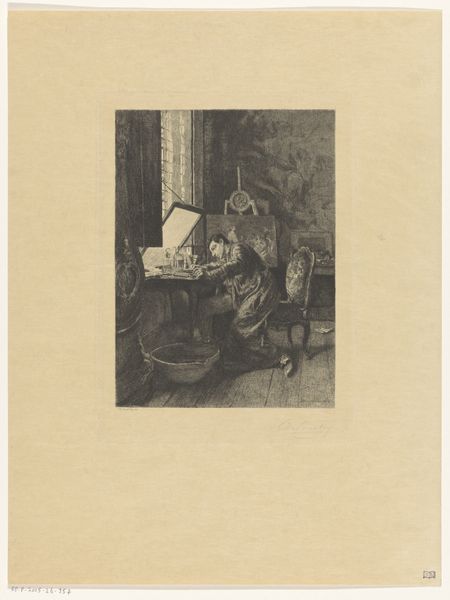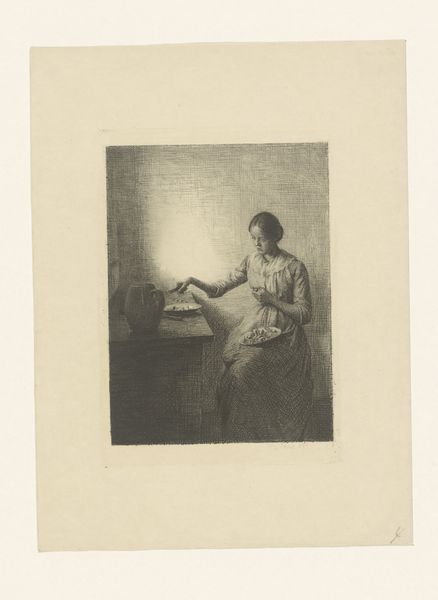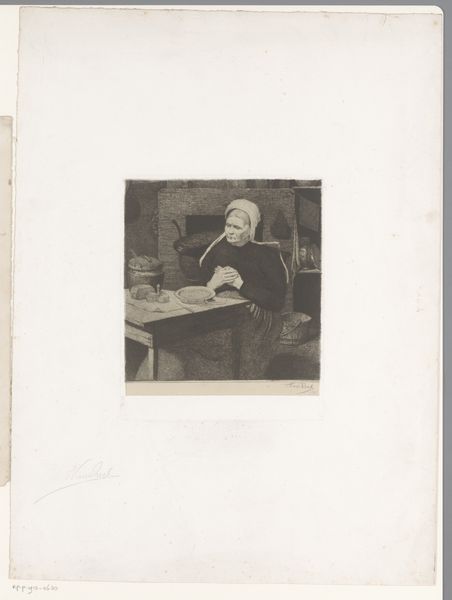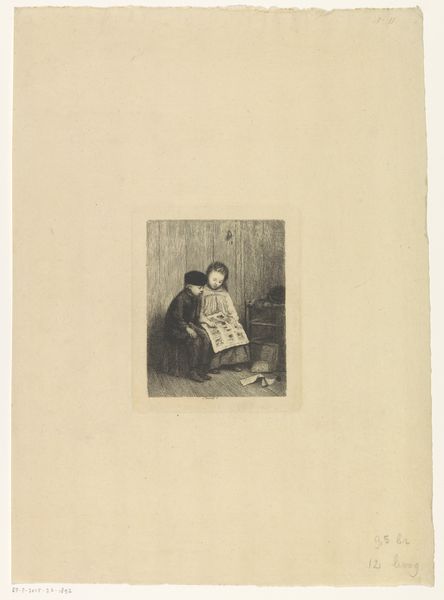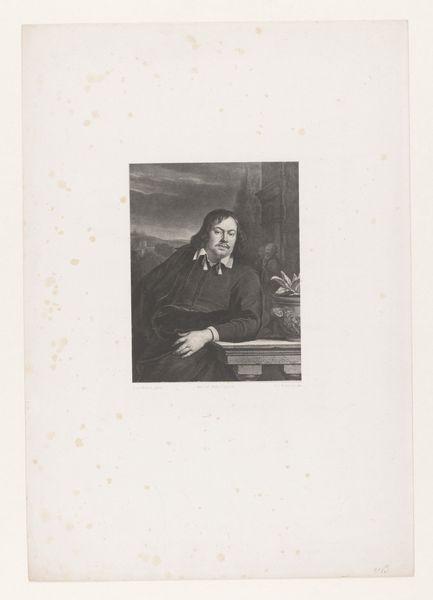
print, etching
#
portrait
#
print photography
#
self-portrait
# print
#
etching
#
german-expressionism
#
figuration
Dimensions: height 178 mm, width 130 mm, height 348 mm, width 261 mm
Copyright: Rijks Museum: Open Domain
Editor: This is Käthe Kollwitz's "Self-Portrait at the Table," created in 1893, using etching. The overall mood feels contemplative, almost melancholic, with the heavy shadows and the artist's direct gaze. What do you see in this piece? Curator: The lamp becomes a powerful symbol. Light often represents knowledge, awareness, even divinity. However, the single lamp also hints at solitude. Do you notice how it casts stark shadows, seemingly trapping Kollwitz in her space? This suggests introspection, maybe even a confrontation with her inner self. Editor: That's a good point; the light does isolate her. So the "light" isn't necessarily illuminating? Curator: Not in a purely positive sense. Remember, in art, light and shadow play a crucial role in conveying meaning. Here, the dramatic chiaroscuro reflects internal conflict. This reminds me of Rembrandt's self-portraits where light often revealed the depth of his subject's aging or troubled psyches. The table in itself signifies labour and personal struggle to materialize in tangible forms, the artistic work. Editor: So, while it's a self-portrait, it's also symbolic of the artist's inner state and struggles? Curator: Precisely. The visual elements – light, shadow, the very act of creating – combine to communicate universal themes of self-examination, isolation, and the burden of artistic expression. Kollwitz, with her social consciousness, seems to present a broader condition. Editor: That changes how I see it completely. I was only looking at the surface before, now it makes me curious to read between the lines. Curator: Indeed, art invites a dance between seeing and interpreting. It is the magic of how we understand ourselves in visual imagery.
Comments
No comments
Be the first to comment and join the conversation on the ultimate creative platform.
